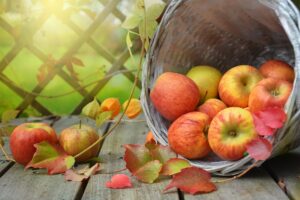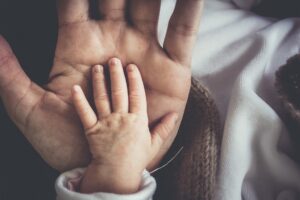Achieving Good Health & Resisting Cancer (n = 1)
What do we do to ensure our good health? Do you just take it for granted that we remain healthy throughout our lives or should we take measures early on to prevent illnesses? How do you decide when is the time? What could be done? What should be done? These are all important questions that need to be addressed and something that ought to be at the forefront of our minds. The reality is that life is too busy, we cut corners, we indulge in the pleasures of life and some will think ‘it won’t happen to me’ or ‘we’ll just see’. Others may feel that it is our healthcare system that should sort out our health needs and problems. Admittedly, we all know it takes energy to change a lifestyle, a habit and a way of life. Deep down, however, we all realise it’s better to start early and it’s just putting it into action that’s the difficult bit.
We make important choices in life but especially in our youth, consideration for our health may not necessarily be a priority as most of us will be fit and well (to varying degrees) at this point. It is easy to forget how serious an illness was after recovering from it after a few days and we may quickly revert back to our old ways that may have in fact contributed to or even caused the very illness itself. Only when the illness has lasting consequences or when it has a profound effect on us do we often come to appreciate the importance of our health (after the event), which sometimes may come too late. The reality is that we often don’t put a lot of emphasis or realise the actual importance of prevention as its benefits aren’t as directly tangible as treatment (particularly if it might not be something you can see or feel and one that may take a lot of time and effort). Overeating, poor sleep hygiene, poor diet, underexercising, smoking, drinking, being in a stressful environment, etc. – the list goes on. While it may not be easy to tackle all of them at once let alone every one of them, keep an open mind to change, make smart choices and learn from those ahead of us in the circle of life (especially those blessed with health and happiness). Earlier, we briefly touched upon the people from the so-called blue zones where they have the highest concentrations of centenarians (i.e. 100-year-olds) in the world; these are the people who have got it right. With health on your side, you will invariably have the potential to enjoy ‘time’ and hopefully have a better chance to find meaning, purpose and happiness in life. (Of course, in the grand scheme of things you could always argue that our actual existence is meaningless in relation to the universe but that’s a separate topic in itself!)

What is important is ultimately it is about you, your life, your choices, your decisions where n equals one (n =1). As part of the cancer-free journey, I hope you will come to appreciate that achieving good health does equate to preventing cancer and one that requires you to take on a level of responsibility. Using the power of the narrative in the first instance, I hope this will get you thinking as you begin to tackle the topics covered in this Cancer Prevention Research section.
Resisting Cancer
(written by Sir Christopher Ball, see also A Time to Reflect)
So far, so good! I am fortunate to have reached the middle of my ninth decade without contracting cancer. I wonder why? Cancer is, I suppose, a developmental disorder (like dementia, perhaps?) with a range of causes, including our nature (our genes), our nurture (our childhood and education), and our adult choices and way of life. I have always wanted to advise the unborn child to ‘choose their (birth) parents carefully’; but unfortunately that isn’t possible. A few of my relatives have developed cancer, and one has died (sadly young) as a result, but the condition is (I am glad to say) not prevalent in my natal family. I had a good upbringing and education, but both parents smoked! I chose not to copy them. As it has turned out, that was a good choice.

Adulthood is when we start making our own choices and arranging our lives for ourselves, I suppose. Of course, our natures and nurture still exert a degree of influence on us, but we live, at least, in the illusion of ‘free choice’. I am not a determinist. As I have grown into the ‘third age’ of life, I have become deeply interested in the question of how best to achieve what I guess everybody wants: good health, adequate wealth and true happiness. Wealth is the easy one, or so I think: get a good education and training, work hard and smart, never borrow without security, save for a rainy day and an adequate pension, buy what you need – not what you want, avoid the adverts, never go shopping without a written list – and stick to it. It has worked for me.

Happiness is the hard one. Start by distinguishing true (long-term) happiness from mere (ephemeral) pleasures – that second glass of wine, or bar of chocolate, or extra hour of TV… I find lasting happiness in three major places: service of others (freely chosen – no one likes being a slave), creation of something new and good (paint a picture, cook a meal, make a garden), and achievement (run a marathon, learn a language, sustain a good marriage). You choose. Humans are creatures of Habit, we are ‘Herd animals’, and we are naturally attracted to trivial, short-term pleasures (the next ‘High’). These three ‘aitches’ are what we were taught at school to call the lures of ‘the world, the flesh and the devil’, and best avoided. Focus on true happiness, and pursue it. Choose carefully, and honour your choice.

What (you might ask) has all this philosophy got to do with health, and cancer! A lot, I think. If one is in a muddle about money or joy, it is not easy to focus on living a healthy life. But, here is my recipe: regular Sleep (eight hours each night), healthy Sustenance (‘the Mediterranean diet’), avoid all Stimulants (recreational drugs, smoking and alcohol), plenty of exerciSe (walk at least a mile a day), Stress (distinguish good stress – challenges, which you choose – from bad stress, which you feel has been imposed on you: avoid the latter, or choose it!), Sex (enjoy it, solo or with a partner), Simplify your life (ruthlessly!). The seven ‘esses’. That’s it: the secrets of health, wealth and happiness (or, so I believe).

Of course, I may yet develop cancer – or dementia, I suppose. (My wife likes to say, on the subject of my possible dementia, ‘How will we know?’) But I live in the belief that one can prolong good health by making sensible choices about one’s way of life. (Like choosing not to smoke! See Tackling Smoking) It’s an interesting alternative: on the one hand, we may choose to take a deterministic view of the onset of cancer: ‘it’s not my fault, just bad luck, what a shame’; or we might take responsibility for our own health and well-being. For my part, I’d rather feel I was responsible for my own life, than just a poor victim of circumstance. If you are responsible, then you can probably do something about it. I don’t choose to be a slave to ‘victimhood’. It’s a free country: you choose!

One last point. I gave up drinking alcohol about ten years ago, when I discovered that the Amish community in the U.S.A., who are strictly teetotal, have a cancer rate measured at 56% of the national average in the U.S.A. I am, I think, the only adult member of my family and friends who never drinks alcohol. I wish I had made that choice earlier. But the three ‘aitches’ are powerful influences. You need to be pretty determined to resist them. (The family’s a gift; you choose your friends.) Choose your friends carefully! Of course, they quote the government guidelines and advice to ‘drink moderately’, when (rarely) we discuss the question. But I have come to feel they are feeble (the guidelines, rather than my friends!): they imply that it’s safe to drink, if you drink moderately. Whereas the truth seems to be gradually emerging that the only safe rule is ‘don’t drink alcohol at all’. Remember how long it took us to recognise the dangers of smoking. My rule, for what it’s worth, is this: don’t drink and drive, of course; and ‘don’t drink – and live!’ (see Tackling Alcohol). I hope you will join the resistance to cancer. Good luck!

Cancer Prevention Research >> Tackling Stress I Tackling Sleep I Tackling Obesity I Tackling Smoking I Tackling Alcohol I Tackling Poor Diet I Tackling the Lack of Exercise I Tackling Sun Exposure I Tackling the Work-Life Balance I Tackling the Fear of Seeing Your Doctor I Cancer Screening I Cancer Vaccination I Genetic Testing